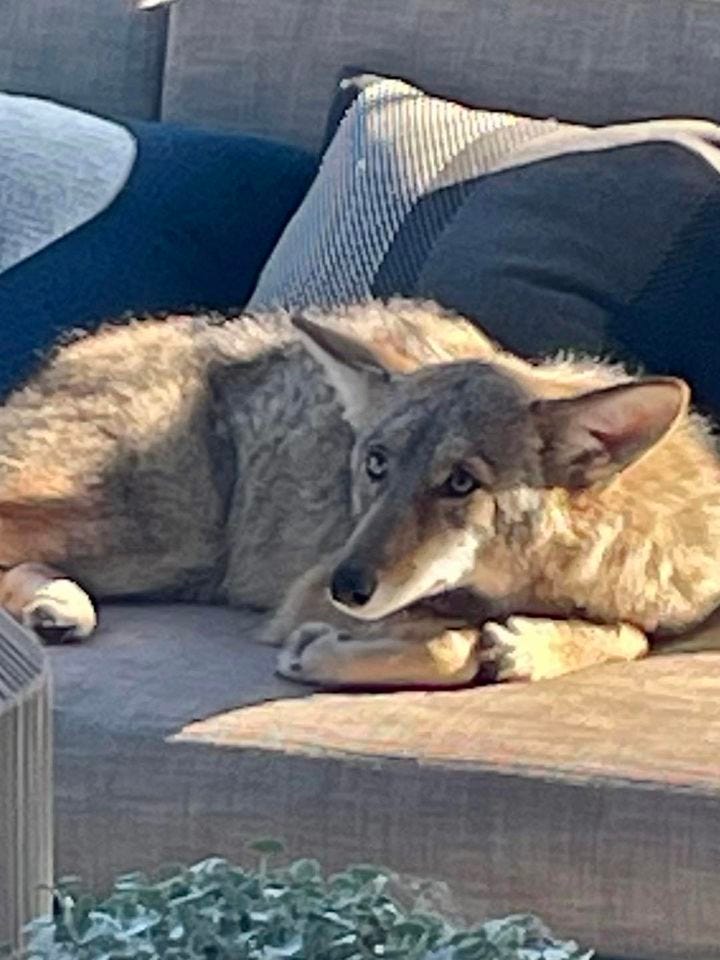
Even though it is technically a wild animal, a coyote that recently decided to snuggle on a California couch looked almost like any other family dog as it rested on the cushions.
According to SF Animal Care & Control, an officer encouraged the “sleepy coyote couch potato” to find a more appropriate place to nap. He listened to advice, but not before he was photographed with a classic “puppy dog” expression.
Coyotes are in the canine family, so they are related to dogs more commonly kept as house pets. NYC.gov explained that they appear “sleeker” than domesticated dogs. They also have flatter foreheads, pointer snouts, longer legs, shallower chests and elongated tracks.
“Coyotes are arguably the most maligned and polarizing wild animal to inhabit San Francisco,” said an article published last month by the Berkeley Rausser College of Natural Resources. These canines are native to California where they have lost habitat. Coyotes can also be found throughout North and Central America.
SF Animal Care & Control promotes peaceful co-existence between people and coyotes. However, coyote sightings in San Francisco have been trending up over the past five years. According to a 2021 article from Kansas State University, coyote populations have been on the rise throughout the U.S.
As for the couch potato coyote, SF Animal Care & Control said in a Facebook post that Officer Laura Mullen said a resident woke up to find the canine asleep on their outdoor furniture and that it was reluctant to move. This resident was concerned that the animal might be sick or injured.
“I approached the coyote and started talking to him, telling him that it was time to get up. He looked at me, got up, took a big stretch and made his way to the edge of the yard. He was moving appropriately and did not appear sick or injured,” said Mullen. “The yard was on the edge of a woodland area and he hopped on over the wall and made his way through the brush. The coyote looked like a young healthy male that was probably recently kicked out of his den and was trying to make his way through the city.”
Mullen also said coyotes help to keep the rodent population under control in San Francisco, “which helps to keep disease transmission down,” and that they are shy and generally not aggressive unless they are threatened or protecting their young.
